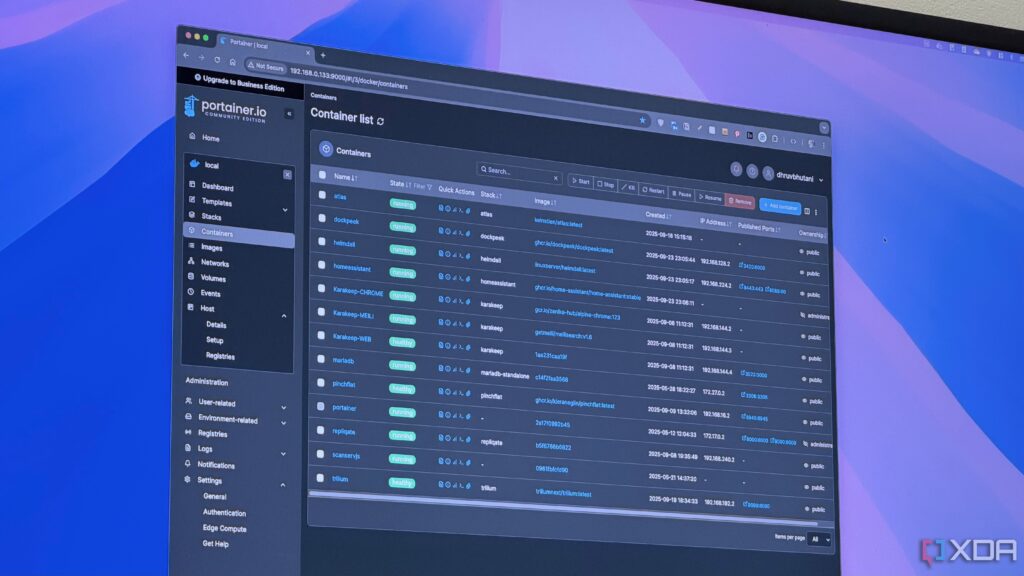
UPDATE: In an urgent development for tech enthusiasts, the self-hosting community is rallying around Portainer, a powerful tool that simplifies Docker management. Users are discovering that this single container is vital for maintaining an organized and efficient self-hosted environment, particularly on devices like the Synology NAS.
Portainer’s popularity surges as more users seek user-friendly interfaces for managing complex Docker containers. As of today, developers report that Portainer makes it easier than ever to deploy and manage applications, offering a clear dashboard that provides visibility and control over all active containers, networks, and volumes.
Why is this significant? For those relying on home servers for work, backups, and automation, Portainer’s ease of use translates to increased productivity and reduced downtime. With a simple interface, users can now manage multiple Docker containers without diving into the command line, streamlining workflows and minimizing errors.
Experts confirm that Portainer addresses a common challenge within the Docker ecosystem: accessibility. Many users find Docker’s command-line interface daunting and prone to complications. Portainer offers a solution with its intuitive graphical user interface, enabling even novice users to manage their self-hosted applications effectively.
Moreover, Portainer’s functionality extends beyond just deployment. Users benefit from comprehensive logging and error tracking, allowing for immediate troubleshooting and updates. With just a few clicks, users can deploy new stacks or remove outdated ones, making it a breeze to experiment with the latest Docker-based applications.
In a world where digital reliability is paramount, Portainer transforms a typical NAS into a monitored appliance, providing peace of mind for users who frequently travel or manage smart home networks remotely. As one satisfied user noted, “Portainer allows me to restart services from anywhere, ensuring my home server runs smoothly even when I’m away.”
The rapid adoption of Portainer highlights a growing trend in self-hosting: the demand for convenience and efficiency. As technology evolves, users are increasingly looking for tools that simplify their workflows without sacrificing power or flexibility.
Security is another critical aspect of Portainer’s appeal. Users can easily monitor which containers expose ports to external networks and manage access permissions, enhancing the overall security of their systems. This is especially vital for families storing sensitive data on their home servers.
As the self-hosting community continues to expand, Portainer is emerging as the go-to solution for users seeking a reliable Docker management tool. With its ability to simplify complex processes, it’s clear why Portainer has become the one container that remains consistently operational on many home servers.
In conclusion, for anyone immersed in the world of self-hosting, Portainer is not just a tool; it’s an essential component that fosters efficiency, security, and peace of mind. As users share their experiences, Portainer’s popularity is expected to grow, solidifying its status as a cornerstone of modern self-hosting practices.





